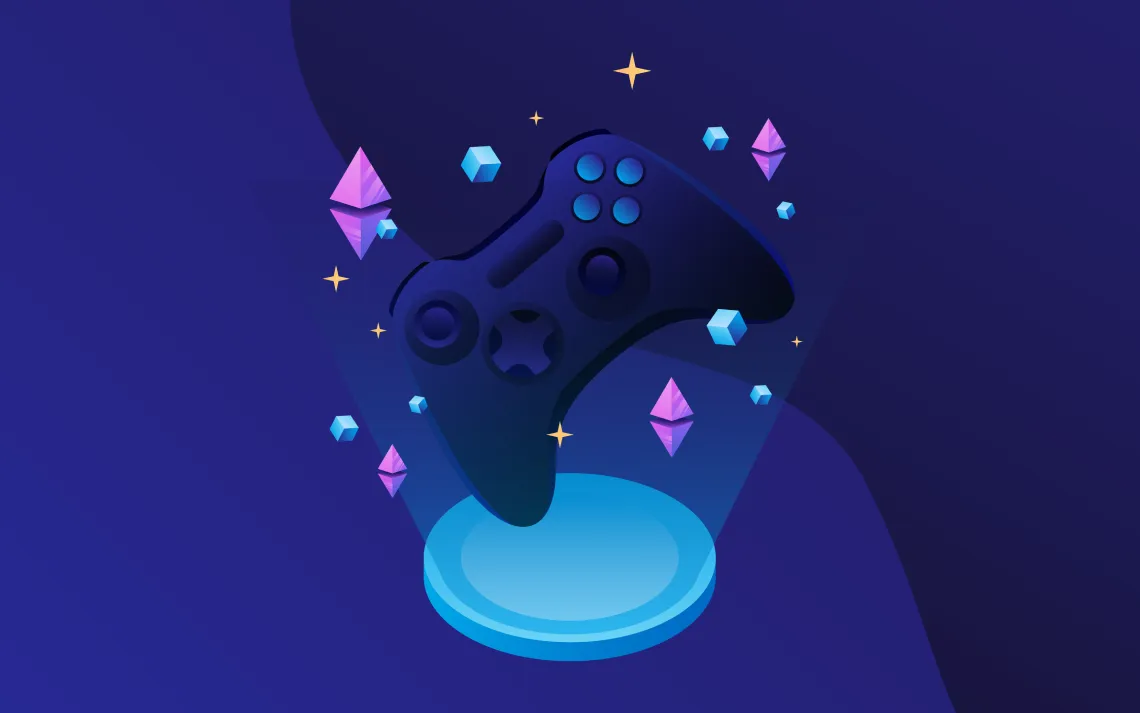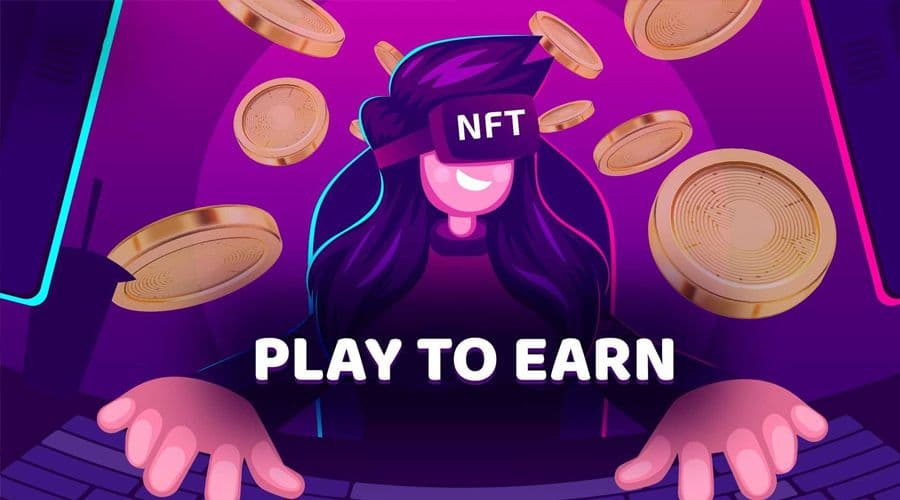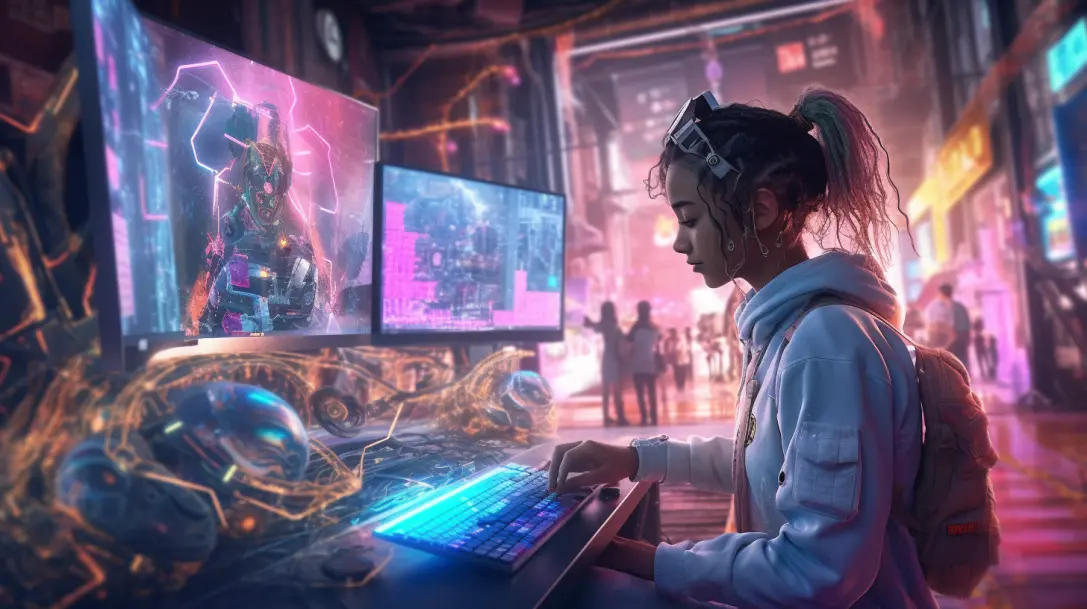In recent years, the intersection of cryptocurrency and gaming has given rise to "crypto gaming." Blending the principles of blockchain technology with the immersive world of video games, crypto gaming represents a paradigm shift in the way we perceive virtual economies, ownership, and interaction within gaming ecosystems.
At its core, crypto gaming harnesses the decentralized nature of blockchain to empower players with true ownership of in-game assets, enabling unprecedented levels of transparency, security, and economic opportunity. As this innovative fusion continues to evolve, understanding the fundamentals of crypto gaming becomes increasingly essential for both avid gamers and cryptocurrency enthusiasts alike.
So, what exactly is crypto gaming, and what potential does it hold for the future of gaming and blockchain technology? Let's dive deeper into this revolutionary landscape to unravel its intricacies and explore its limitless possibilities.

Many video games have some form of in-game currency, such as V-bucks in Fortnite and robux in Roblox. However, most games penalize players who sell their in-game currency to others. In contrast, many web3 games let players earn crypto by completing quests or outperforming other crypto gamers. These players own their crypto gaming assets and are free to sell them to others.
These crypto games can pay players and store data because they use blockchain technology and smart contracts. In the next section of this article, we will discuss how crypto gaming works and what you need to know to start playing today.
How Does Crypto Gaming Work?
These games often use non-fungible tokens (NFTs) and cryptocurrency. In most cases, crypto games have specific gaming tokens to reward players. The web3 game My Neighbor Alice rewards players with the ALICE token when they participate in events. Players can use the ALICE token to buy in-game assets, NFTs, and avatars.
What is Tokenization?
"The tokenization of game assets refers to the process of creating blockchain-based certificates of ownership for in-game items, avatars, and currencies."
The concept of tokenizing game assets involves the creation of blockchain-based certificates of ownership for in-game items, avatars, and currencies. This transformative process is shifting control from gaming studios to players, resulting in the emergence of dynamic player-driven game economies.
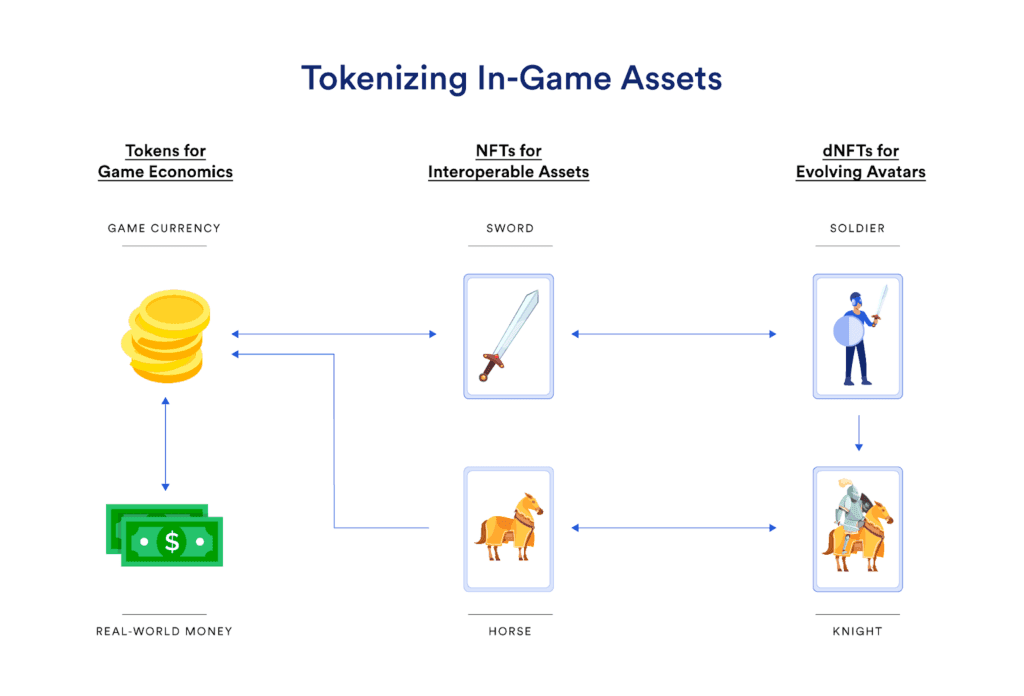
The blockchain gaming ecosystem relies on a combination of web2 and web3 technology. Gaming environments are typically stored on centralized servers, as is some or all player data. Distributed ledgers are used to store crypto gaming coins and NFTs representing virtual items.
What is Play-to-Earn?
"Play-to-earn represents a genre of blockchain-based games that incorporate player-owned economies through the use of in-game assets represented by tokens and NFTs.”
Play-to-earn games incentivize players to participate by rewarding them with cryptocurrency and NFTs. The play-to-earn model bridges the gap between playing for fun and profit because the players’ rewards have real-world value and can be sold on the secondary market.
What is Blockchain Gaming?
"A blockchain game is any game that uses blockchain technology to enhance or rearchitect traditional video games."
At its core, a blockchain game is any game leveraging blockchain technology to innovate traditional video games. The intrinsic alignment between video games and web3 is evident; both exist in the digital realm, incorporating digital items and currencies with built-in gamification.
The key objective of blockchain games is to establish a fairer and more transparent relationship between players and game creators. The implementation of blockchain technology varies, offering degrees of enhancement within video games.
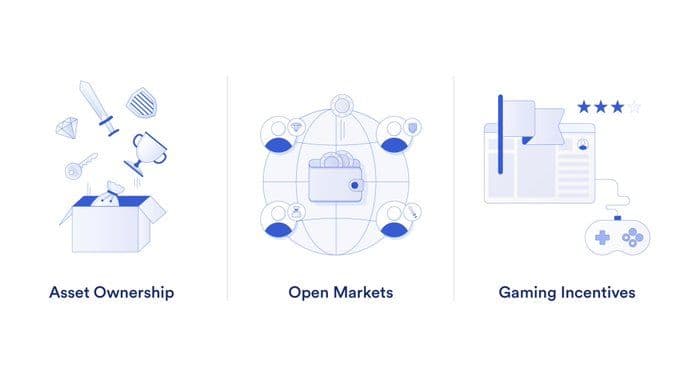
How Do Players Earn Assets?
The developers of blockchain games earn money through advertising and selling items and through the game's native cryptocurrency. These earnings are often passed onto players by rewarding them with virtual assets. There are various ways to earn assets by playing crypto games, such as:
(1) Winning crypto or NFTs for success
Most play-to-earn games have specific success metrics to track players' earnings. For example, a blockchain-based trading card game may reward players with a specific number of cryptocurrency tokens for each opponent they beat.
(2) Leveling up characters
In some cases, you can earn rewards by leveling up your in-game character. For example, a blockchain-based RPG may reward players with in-game items each time they level up. These in-game items are often minted as NFTs that can be sold on the secondary market.
(3) Gamble with cryptocurrency
Crypto gambling games function similarly to traditional gambling games but reward players with cryptocurrency instead of fiat. We do not recommend this.
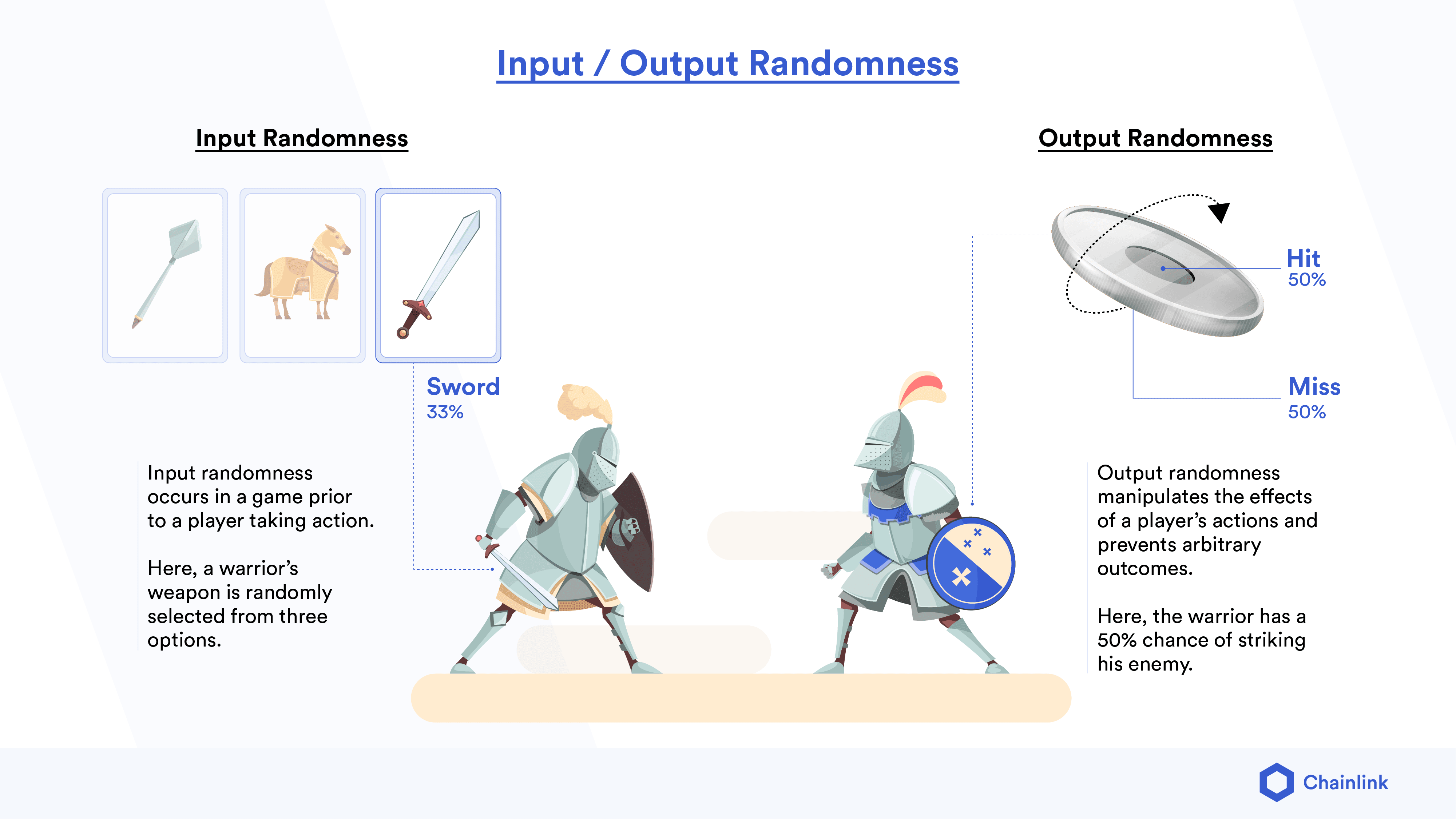
Can You Earn Real-World Money?
Crypto games reward players with cryptocurrency or NFTs. Players own these assets after earning them and may trade them for stablecoins or fiat currency—dollars that can be spent in the real world. In the early stages of gameplay, you tend to earn fewer assets, meaning you'll make less money by playing. However, the value of these assets fluctuates, similar to the value of a stock. If you hold your assets, you may be able to trade them for more money at a later date. On the other hand, an asset's value can decrease over time.
How Do I Get Started?
You'll need a cryptocurrency wallet to play blockchain-based games. For this reason, you may want to start by identifying a few games that interest you. Once you know which game you want to play, you can find out which crypto wallet you'll need. For example, Axie Infinity uses the Ethereum blockchain, so you can't play it unless you have an Ethereum wallet, such as MetaMask.
Note: Axie Infinity is built on the Ronin Network, an Ethereum-linked sidechain developed by Sky Mavis. The game's official cryptocurrency is "Axie Infinity Shards/Token" or AXS for short.

After creating your crypto wallet and storing your wallet passphrase in a safe place, navigate to the game's website to set up an account. Some games require software, while others have web-based gaming environments. Some games require players to buy digital assets before they can play. For example, you may have to buy a character NFT or governance token before interacting with the game. One good thing is that NFTs can be interoperable, meaning you can use the same NFT in multiple games within an ecosystem (see image below as an example).
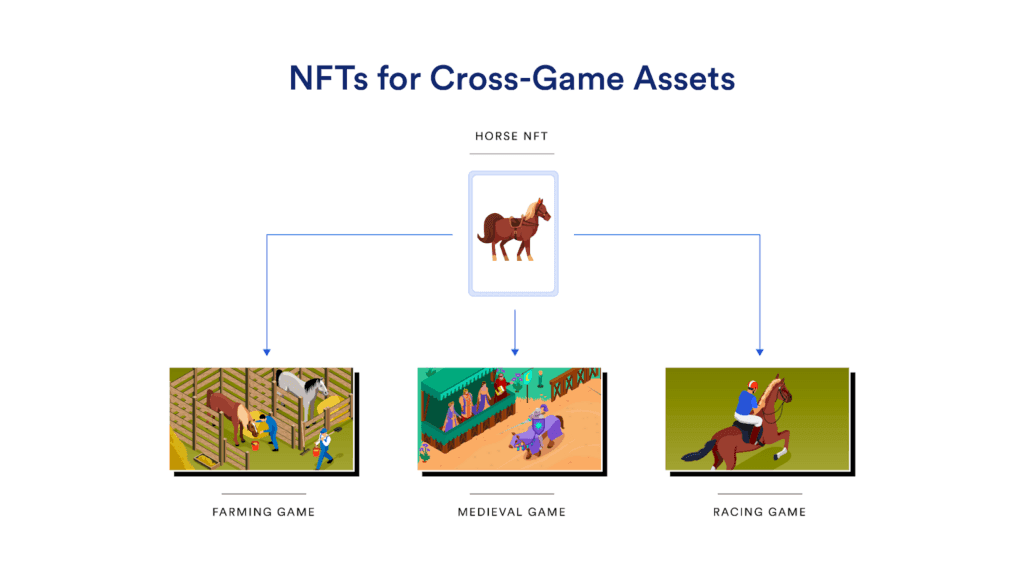
What are the risks?
(1) Sending Tokens
If you play games on different blockchains, you risk sending your tokens to the wrong wallet. Before transferring tokens from one wallet to another, double-check the address to make sure it can hold the tokens you're sending. If you send tokens to the wrong wallet, you cannot retrieve them.
(2) Scams and Hacks
Never share your wallet passphrase. If someone else obtains your passphrase, they can use it to steal your tokens. You must also be weary of games that seem too good to be true. In early 2022, a promising game called Anirand became popular in the Algorand ecosystem. This game released NFTs and tokens before showcasing any gameplay footage and enlisted numerous Algorand influencers to promote it. Unfortunately, the creators removed their tokens from their liquidity pool and closed their social media accounts, stealing roughly $550,000 worth of Algorand from its investors.
(3) Value Fluctuations
If a game's popularity declines, the value of its associated assets will likely decrease. For example, the popular NFT-based game Axie Infinity had 2.7 million average monthly players in January 2022, compared to just 389,000 in March 2023. The value of its native token, AXS, fell from $94.33 in January 2022 to $9.99 in March 2023. See the image below for an example of more recent data on token fluctuations from the web3 game Heroes of Mavia.
(4) Legality
Before you engage in decentralized gaming, it's important to determine that it is legal in your region. Online gambling is illegal in some states, and you may find yourself in trouble if you try to use cryptocurrency to avoid these regulations.
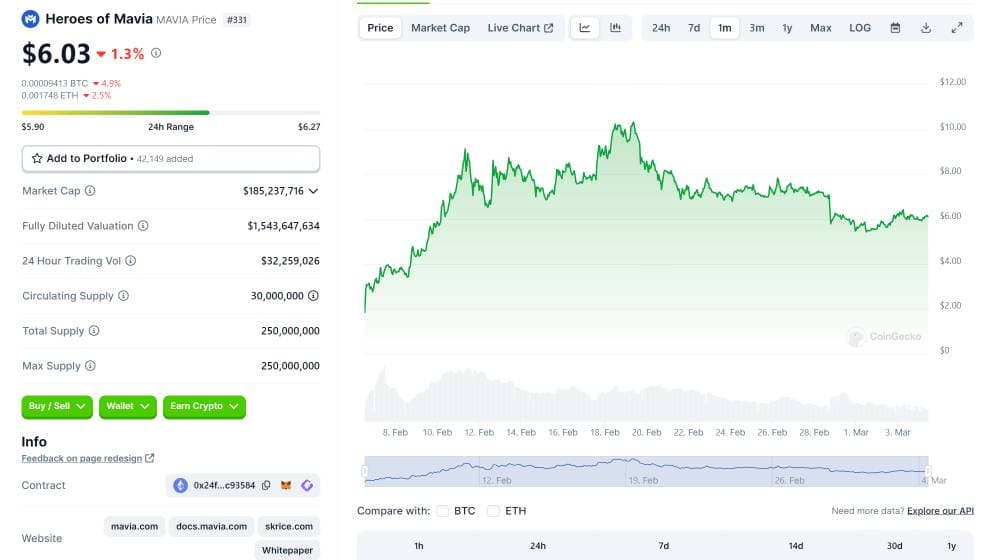
The Future of Crypto Gaming
The crypto gaming ecosystem offers players a way to earn money by playing the games they love. Moreover, web3 games can be more secure than traditional games and typically allow players to participate in their governance. However, players must beware of scams, fluctuating asset values, and potential hacks. Additionally, players need a basic understanding of blockchain and cryptocurrency wallets to participate in the crypto gaming ecosystem.
This article was inspired by an original blog post from Hedera you can read the full post on their website here for more information.

